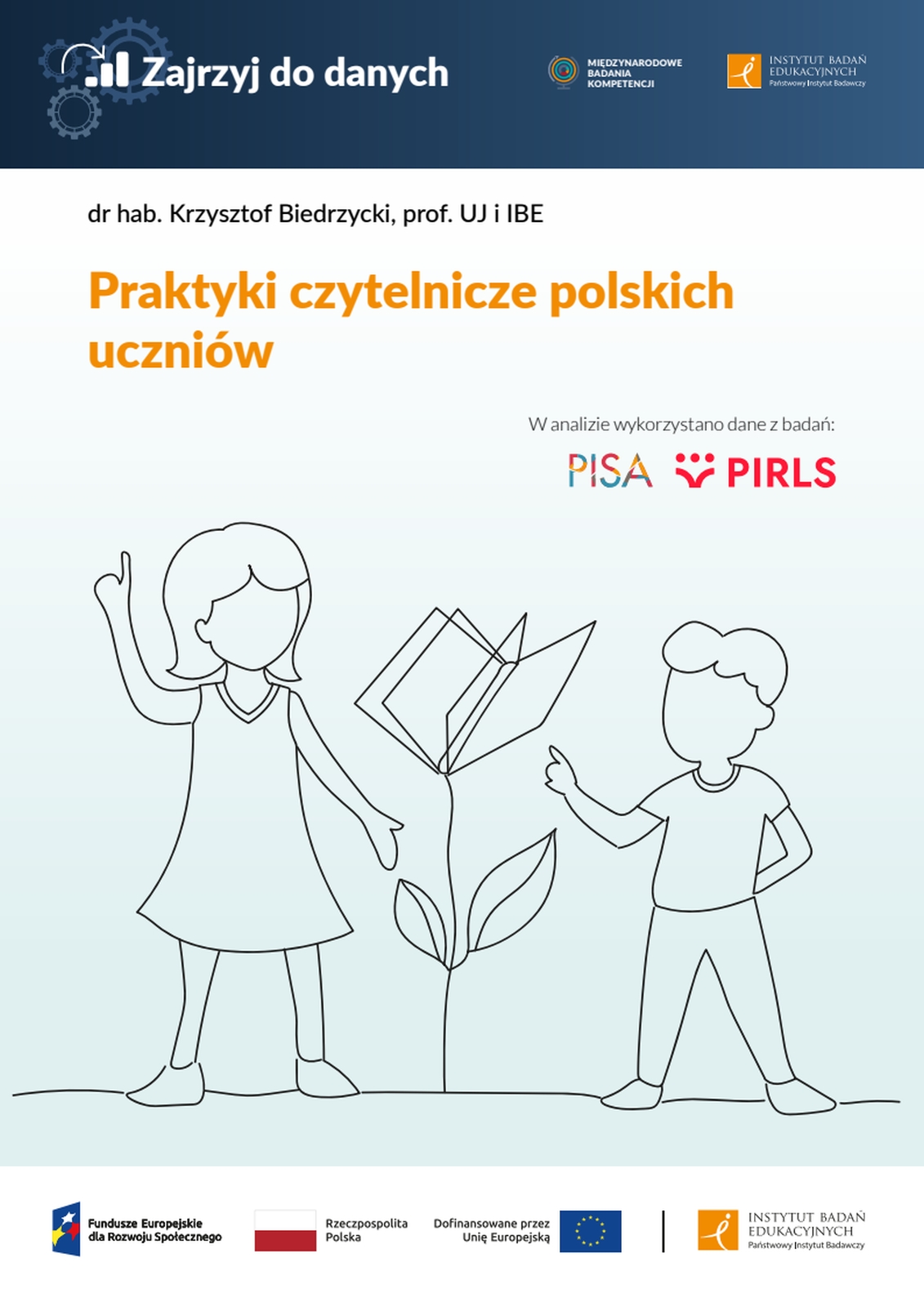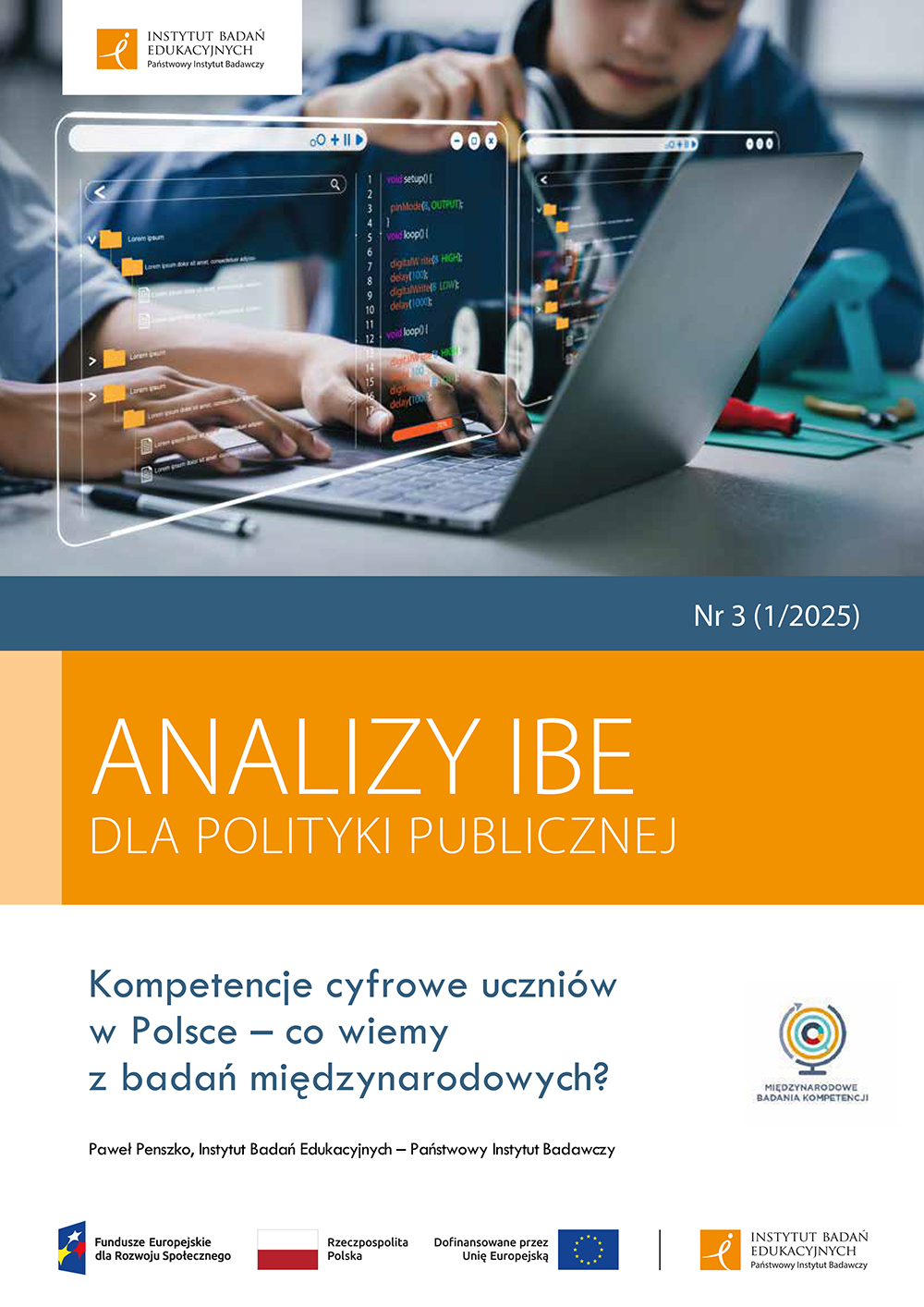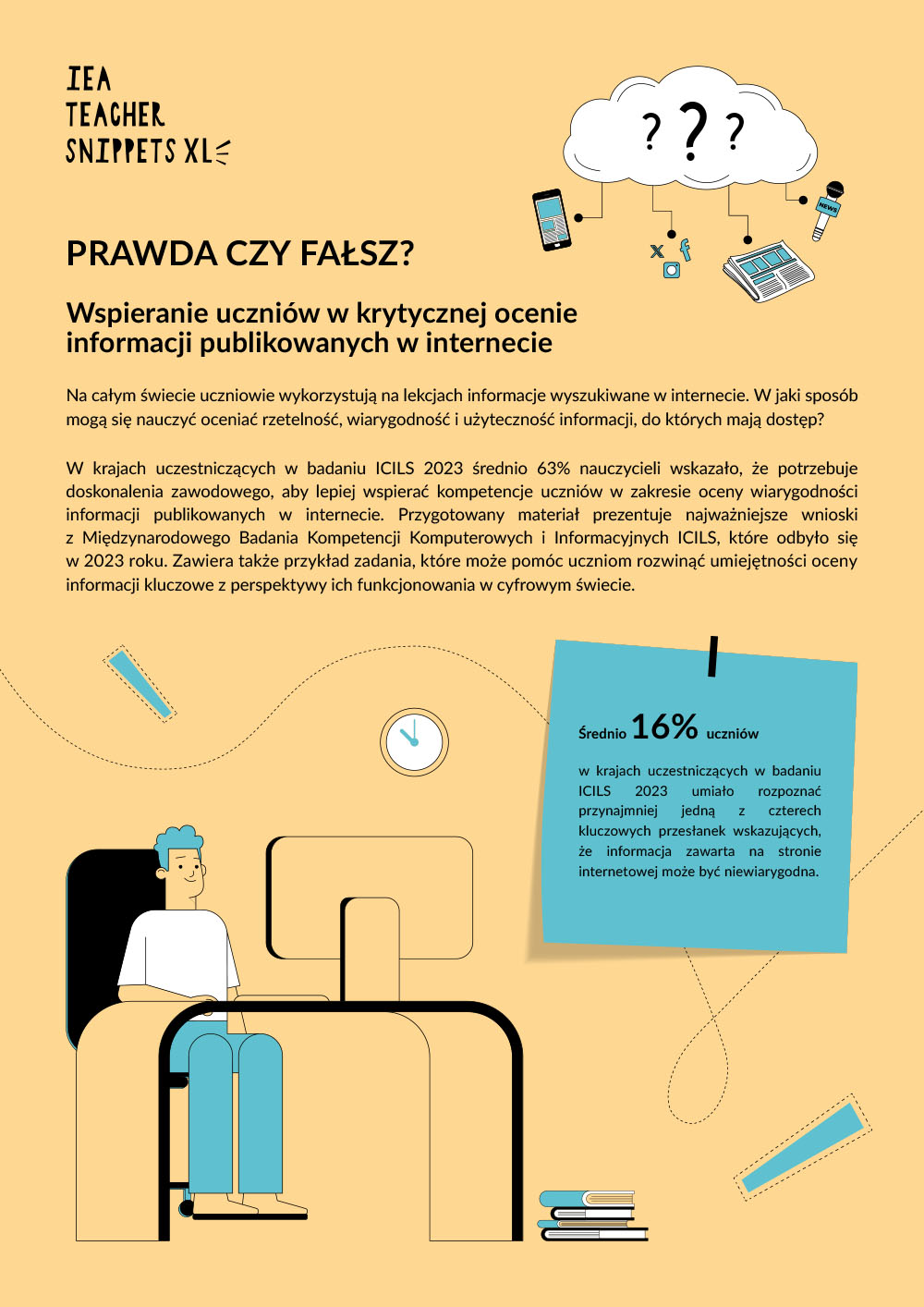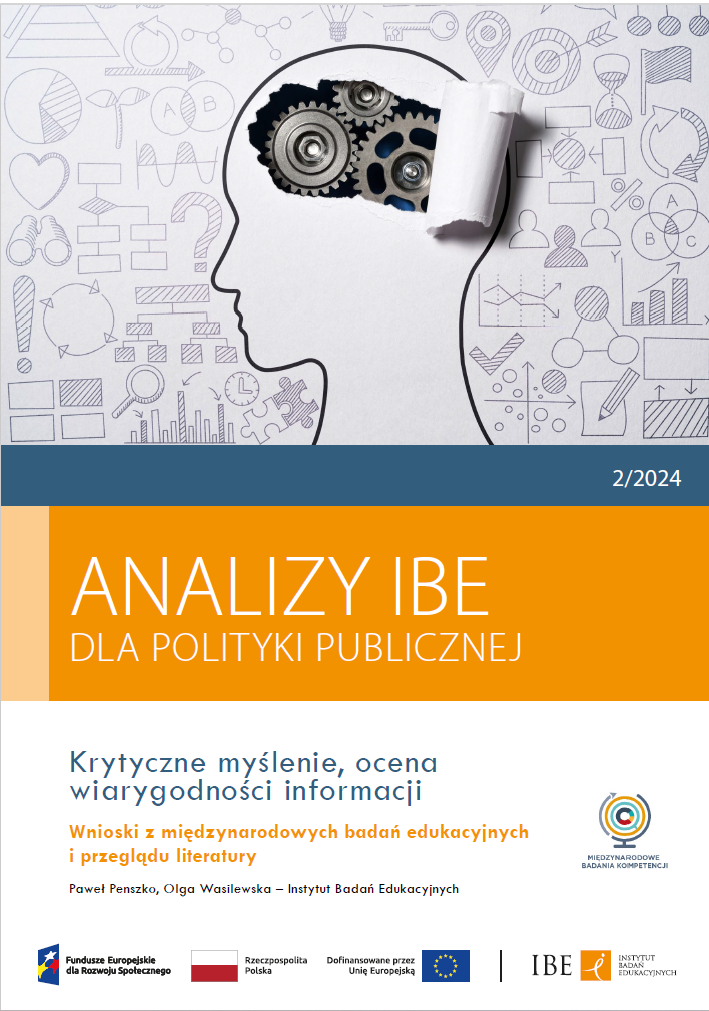Praktyki czytelnicze polskich uczniów
Krzysztof Biedrzycki
Instytut Badań Edukacyjnych – Państwowy Instytut Badawczy, 2025
Opracowanie stanowi pierwszą analizę tematyczną z serii „Zajrzyj do danych”, poświęconą praktykom czytelniczym polskich uczniów. Autor analizy, na podstawie wyników międzynarodowych badań edukacyjnych PIRLS i PISA, prezentuje znaczenie biografii czytelniczej uczniów w procesie pracy nad rozumieniem czytanego tekstu. W opracowaniu można znaleźć praktyczne wskazówki dla nauczycieli języka polskiego, w jaki sposób włączyć tę wiedzę do praktyki edukacyjnej i wspierać rozwój kompetencji czytelniczych uczniów. „Zajrzyj do danych” to seria krótkich, tematycznych analiz poświęconych zagadnieniom istotnym z punktu widzenia polskiej edukacji, opracowywanych na podstawie wyników międzynarodowych badań edukacyjnych.
Kompetencje cyfrowe uczniów w Polsce – co wiemy z badań międzynarodowych?
Paweł Penszko
Instytut Badań Edukacyjnych – Państwowy Instytut Badawczy, 2025
W trzecim opracowaniu z cyklu „Analizy IBE dla polityki publicznej” na podstawie analizy danych z międzynarodowych badań edukacyjnych (ICILS, ICCS, PISA, TIMSS oraz PIRLS) przedstawiono, co wiemy o kompetencjach cyfrowych uczniów w Polsce na podstawie danych z badań międzynarodowych. W publikacji poszukiwano odpowiedzi na pytania o to, jak polscy uczniowie radzą sobie w cyfrowym świecie, czy szkoła skutecznie rozwija ich umiejętności oraz jakiego wsparcia potrzebują. W analizie pokazano również, jak samoocena kompetencji uczniów ma się do ich rzeczywistych wyników oraz różnice między płciami w nabywaniu specjalistycznych kompetencji cyfrowych. Publikacja zawiera rekomendacje dla polityki edukacyjnej.
Prawda czy fałsz? Wspieranie uczniów w krytycznej ocenie informacji publikowanych w internecie
Julian Fraillon, IEA
Instytut Badań Edukacyjnych – Państwowy Instytut Badawczy, 2025
Opracowanie przygotowane przez Międzynarodowe Stowarzyszenie Mierzenia Osiągnięć Szkolnych (IEA) mające na celu przybliżenie wyników badania ICILS 2023 dotyczących kompetencji uczniów w zakresie oceny wiarygodności informacji. Broszura skierowana jest do nauczycieli, osób pracujących z młodzieżą oraz rodziców i zawiera wskazówki, jak uczyć młodych ludzi krytycznego spojrzenia na treści publikowane w internecie, m.in. sposoby i kryteria oceny wiarygodności informacji.
Krytyczne myślenie, ocena wiarygodności informacji. Wnioski z międzynarodowych badań edukacyjnych i przeglądu literatury.
Paweł Penszko, Olga Wasilewska
Instytut Badań Edukacyjnych, 2024
W drugim opracowaniu z cyklu „Analizy IBE dla polityki edukacyjnej” na podstawie szerokiego przeglądu literatury przedstawiają kluczowe wnioski na temat krytycznego myślenia oraz skutecznych sposobów rozwijania wśród uczniów umiejętności oceny informacji i odporności na dezinformację. Następnie, analizując różne dane, w tym z międzynarodowych badań edukacyjnych ICCS, PIRLS i PISA, szukają odpowiedzi na pytania: czy polska szkoła uczy krytycznego myślenia, czy polscy uczniowie potrafią krytycznie myśleć oraz czy polscy uczniowie podchodzą krytycznie do informacji znalezionych w internecie. Publikacja zawiera także rekomendacje dla polityki edukacyjnej.











